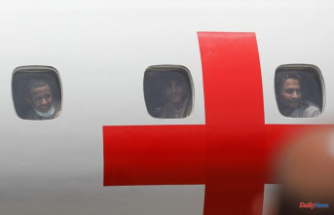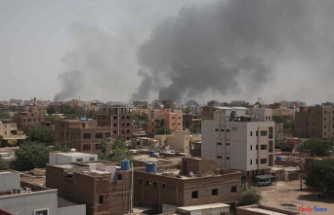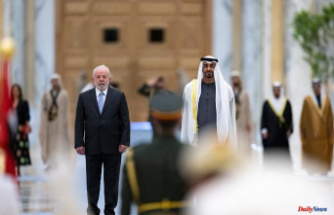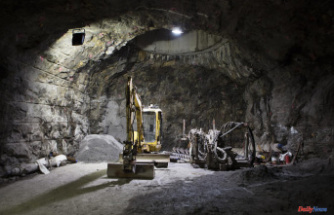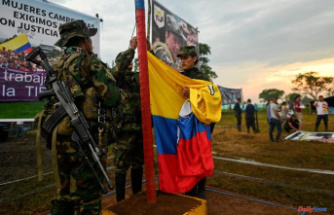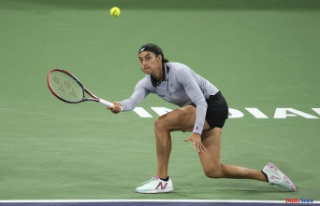The message is addressed as "friends" but it bluntly expresses the fears surrounding the preparation of the presidential election in Madagascar: Tuesday, April 4, eight chancelleries present in Antananarivo came out of their traditional reserve to publicly express alarm at the restrictions on the opposition candidates' right to assembly, announced by the Ministry of the Interior four days earlier.
This decision contrary, according to them, to the commitments made within the framework of international conventions and in the Constitution, "could contribute to tense the political climate with the approach of the presidential election [scheduled for November]", write in a joint press release the representatives of the European Union (EU), Germany, the United States, France, Japan, the United Kingdom, Switzerland and Norway. These countries and the EU finance all of the bilateral aid received by the Indian Ocean island.
While for several months the opposition to President Andry Rajoelina has been subjected to intimidation and arbitrary decisions to limit their gatherings, the Minister of the Interior and Decentralization, Justin Tokely, took an additional step on Friday, March 31, by banning outdoor "political public meetings". In other words, demonstrations like rallies. Political meetings will now have to take place in closed rooms, "so that the words spoken are not heard on the public highway", then specified the minister, relying on an ordinance taken after independence in 1960 .
Elected officials – mayors and deputies – are also ordered to limit their exchanges with the population to reports on their activities. Like the adoption of laws, but which parliamentarians will only be able to speak about at the end of each session, "not at the beginning, during [or] before", and only within their constituency.
screw turn
If this turn of the screw, justified by "the risks to public order", applies to all political parties, including those of the presidential coalition, it does not concern members of the government nor, a fortiori, the leader of the State, which the Minister of the Interior considers that they express themselves "in their function for the implementation of the general policy of the State".
“Ministers will be able to continue to criss-cross the country and propagandize Andry Rajoelina while his competitors will have to make do with small audiences and behind closed doors. Who can accept that? “, worries a diplomat on condition of anonymity. The president himself – although he has yet to officially declare himself a candidate for a second term – is never short of inaugurations or various distributions to rally the population and promote his record.
Opposition parties were quick to denounce what they call a coup against democracy. “Attacks on freedom of expression and freedom of peaceful assembly are political practices of a bygone era. The president places himself outside the law. Has he forgotten that in 2018 he was able to criss-cross Madagascar to campaign without restrictions? “, deplores Hajo Andrianainarivelo, the leader of the Malagasy Miara Miainga (MMM) party, who left the government coalition a year ago.
The HVM party, of former president Hery Rajaonarimampianina, appealed to the High Constitutional Court and the Independent National Electoral Commission (CENI) to regret "unjustified drifts" and a violation of the Constitution, barely a week after the launch of consultation on the electoral process between the various players in Malagasy political life.
bras de fer
This dialogue led by the CENI aims to clear up the multiple issues of tension on the organization of the ballot. Starting with the overhaul of the electoral list and the recomposition of the commission to guarantee its independence by opening it up to personalities not linked to power. The outcome of the discussions and the guarantees of transparency and credibility that can be provided also depend on the financing of the election by foreign donors. The State, according to initial estimates, would only be able to provide a third of the needs.
Will the opposition parties stick to these protests of principle or will they defy this decision which threatens to make them disappear from the public space? The standoff opens in a deleterious and highly inflammable social climate. At the end of March, in Sambava, on the eastern coast of the island, planters and operators in the vanilla sector took to the streets to demand the abolition of the minimum price imposed by the government to be able to export, attacked a tuk-tuk driver whose only fault was to wear an orange t-shirt bearing the image of Andry Rajoelina. The man was narrowly saved.
"By doing so, power is engaging in provocation. He tells us that he is ready to use force to win the election. But the population will not let it go,” says Hajo Andrianainarivelo, who wants to believe that the police will not allow themselves to be drawn into a new cycle of violence. The deputy of Tulear and declared candidate for the presidential election Siteny Randrianasoloniaiko does not intend to give in to the injunctions of the Minister of the Interior: "I will continue to bring the population together, because we must save Madagascar and show the whole world that our country is becoming a dictatorship. ” Considered a serious opponent of Andry Rajoalina, the one who started a tour of the island last month gives an appointment to his supporters on April 20 in Antisiranana (north).


